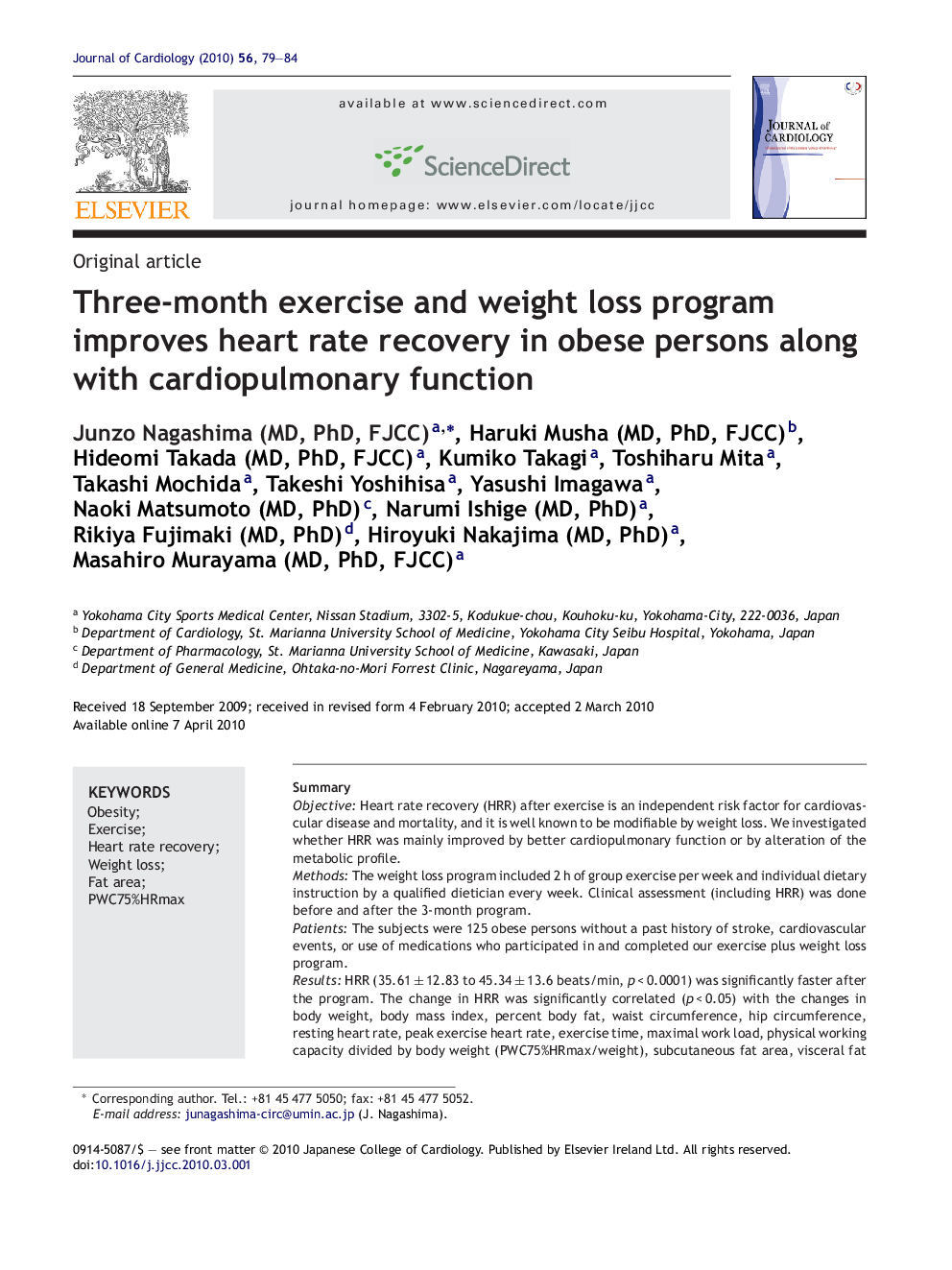| Article ID | Journal | Published Year | Pages | File Type |
|---|---|---|---|---|
| 2963619 | Journal of Cardiology | 2010 | 6 Pages |
SummaryObjectiveHeart rate recovery (HRR) after exercise is an independent risk factor for cardiovascular disease and mortality, and it is well known to be modifiable by weight loss. We investigated whether HRR was mainly improved by better cardiopulmonary function or by alteration of the metabolic profile.MethodsThe weight loss program included 2 h of group exercise per week and individual dietary instruction by a qualified dietician every week. Clinical assessment (including HRR) was done before and after the 3-month program.PatientsThe subjects were 125 obese persons without a past history of stroke, cardiovascular events, or use of medications who participated in and completed our exercise plus weight loss program.ResultsHRR (35.61 ± 12.83 to 45.34 ± 13.6 beats/min, p < 0.0001) was significantly faster after the program. The change in HRR was significantly correlated (p < 0.05) with the changes in body weight, body mass index, percent body fat, waist circumference, hip circumference, resting heart rate, peak exercise heart rate, exercise time, maximal work load, physical working capacity divided by body weight (PWC75%HRmax/weight), subcutaneous fat area, visceral fat area, low-density lipoprotein cholesterol, and leptin. Multivariate analysis showed that the change in HRR was significantly correlated (p < 0.05) with the changes in resting heart rate, peak exercise heart rate, and PWC75%HRmax/weight.ConclusionsOur data demonstrated that HRR can be improved in obese subjects by a 3-month exercise and weight loss program. Improvement in cardiopulmonary function by exercise seems to be the main contributor to the increment of HRR.
